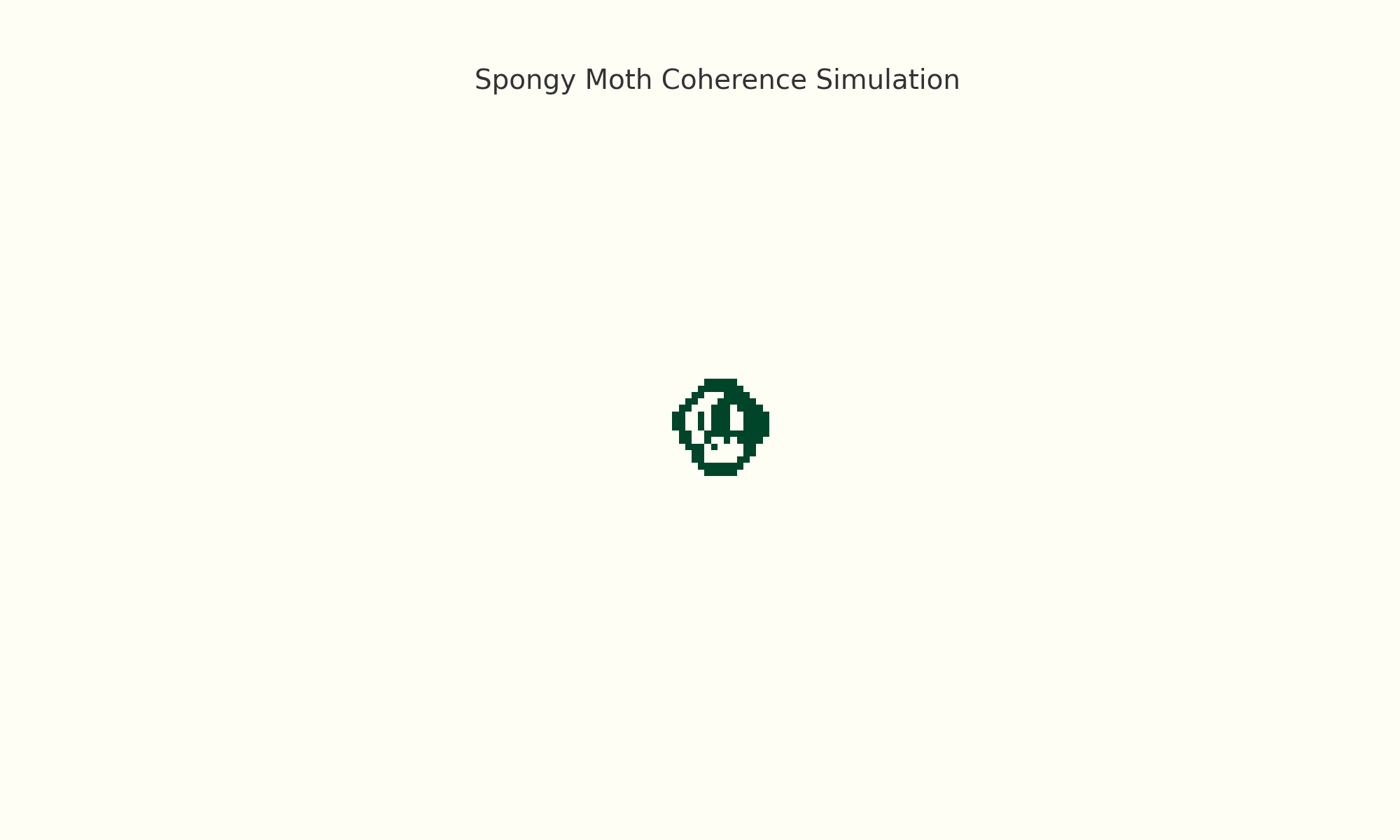🌟 The Geometry of Emergence in the LSF Star
At the heart of emergence lies one key principle:
Simple rules → Recursive interaction → Coherent pattern
This star-shaped symbol isn’t just decorative — it models exactly how that coherence arises from dynamic fields of interaction, like in a swarm.
🐛 Spongy Moth Simulation Recap:
In the Spongy Moth Coherence Simulation, moth agents:
- Follow localized rules (movement, vibration, phototaxis, chemical trails).
- Respond to environmental forces (light gradients, acoustic pulses).
- Adjust their movement based on others in the field — creating a coherence field.
What emerges is order from chaos: moths forming spiral, node-like, or pinched vortex patterns that move and morph.

✴️ Mapping the Star Symbol to Swarm Behavior
Let’s map each element of the LSF star shape to swarm dynamics:
1. Light (Vertical Axis – Expansion)
- Represents attraction to stimuli (e.g. moonlight, pheromones).
- Swarm members “reach upward” toward a signal.
- In the shape: the top and bottom limbs stretch outward — modeling inflow/outflow of sensory or energetic input.
2. Sound (Horizontal Axis – Modulation)
- Represents vibration, communication, or wingbeat resonance.
- Moths “hear” each other and synchronize through local wave harmonics.
- In the shape: left-right curves capture oscillations that ripple through the swarm like a wave pulse.
3. Form (The Inner Diamond – Coherence)
- Where Light and Sound intersect, a geometric form stabilizes.
- This is the feedback loop: each agent modifies the field it perceives, and the field shapes the group’s movement.
- In the center: you get a tight diamond pinch, the moment of coherence, where form emerges from flow.


🌀 The Feedback Loop in Action
In the simulation:
- Agents moving toward light (signal) stretch the swarm vertically.
- Those modulating around sound pulses create phase synchrony horizontally.
- As they interact, form crystallizes from rhythmic convergence — resulting in node-like spatial attractors, i.e., patterns like your Spongy Moth cluster vortex.
This LSF star shows how emergence is not a static endpoint, but a continuously updated field geometry, shaped by:
- Flow (Light)
- Interference (Sound)
- Constraint (Form)
📊 Why the Star Geometry?
The star shape represents recursive inflection — not just one movement, but a looped emergence pattern:
- Outward thrust (expansion)
- Inward fold (feedback)
- Stabilization (form)
- Re-ignition (next cycle)
This is exactly what you observe in the moth coherence — swirling, pausing, reforming, flowing again — a living fractal.

Leave a Reply